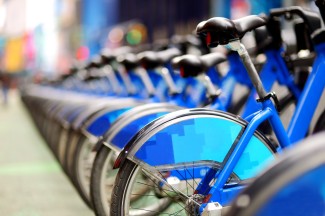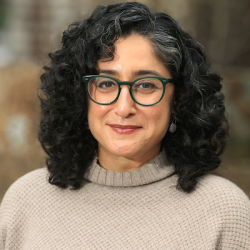Many urban residents today can choose from a wide range of travel options. Public buses and trains, car-sharing options like Zipcar, on-demand ride-sharing services like Uber and Lyft, and bike-share programs are available in major cities. However, many of these options are not widely available in low-income neighborhoods because they can be physically inaccessible or unaffordable to their residents.
Additionally, as many cities have spread outward and the distance between jobs and residential centers has grown, fewer residents are served by affordable and efficient transportation options, and daily commutes can be long and expensive. This is particularly true in low-income neighborhoods, where transportation options are often few and far between.
New urban mobility options must serve everyone. This approach would transform how people travel and enable them to reap the benefits of saved time and fuel. Car-, bike-, and ride-sharing programs could remove the dependence on single-occupancy vehicle trips in urban communities while reducing overall energy consumption. Safe and appealing environments for walking and biking could help, too.
Cities are expanding car-sharing programs
A variety of pilot projects and programs peppered around the country are aiming to make transportation services that have typically targeted more affluent neighborhoods available to low-income communities. Most of these pilot efforts are focused on car sharing and bike sharing, but all have the same goals of changing mobility patterns, connecting underserved households to difficult-to-access job centers, and minimizing expensive commutes.
Car sharing can help improve access to job centers as well as overall mobility in low-income communities, while also removing the need to purchase and maintain personal vehicles. Car-sharing programs essentially provide a vehicle where and when needed, removing the onus of owning a vehicle. According to a report by the Urban Institute, urban, low-income households generally either don’t own cars or they drive cars that are older and pollute more on average than vehicles owned by higher-income households. The energy and emissions reduction potential from this sub-sector of vehicle owners is therefore significant.
Many cities and states are working to make car-sharing services accessible to low-income communities. Californian cities, in particular, have taken the lead in creating and implementing these programs. As part of its Sustainable City pLAn, the City of Los Angeles created a car-sharing pilot program to bring 100 electric vehicles to some of the lowest-income communities in the city. Spurred by SB 1275 (the Charge Ahead California Initiative) and funded by the California Air Resources Board, the pilot program makes cleaner, more-efficient transportation options more easily available in low- and moderate-income communities. More recently, the city of Sacramento has provided electric vehicles for car sharing in three public housing complexes.
In Chicago, the Shared Use Mobility Center has partnered with Getaround ride sharing to create a pilot peer-to-peer car sharing network in low-income communities. In the past six months, the program has registered more than 5,000 residents who share 75 vehicles on an as-needed basis, indicating keen interest in alternatives to personal vehicle ownership among low- to medium-income households.
Bike-sharing programs are also expanding
Bike sharing gives residents in underserved communities access to fuel-free trips. Bike-sharing programs can connect low-income communities to public transit, as they offer an option for quick, on-demand, one-way trips to and from stations, boosting ridership and often saving fuel in the process.
In 2015, The JPB Foundation funded the City of Philadelphia, the Bicycle Coalition of Greater Philadelphia, the National Association of City Transportation Officials (NACTO), and the PeopleForBikes Foundation to create the Better Bike Share Partnership (BBSP), aimed specifically at underserved communities. Using Philadelphia as a pilot, the BBSP funded the construction of 20 bike stations in underserved communities. PeopleForBikes will oversee more than $900,000 in Better Bike Share grant funding to increase bike sharing in underserved communities around the country. As part of the first round of funding, Better Bike Share has awarded grants to bike-share programs in Austin, Boston, Brooklyn, Charlotte, Chicago, and Washington, DC. The second year of funding covered programs in Atlanta, Basalt, CO, Boston, Brooklyn, Los Angeles, Milwaukee, Minneapolis, Oakland and Berkeley, and Portland, OR.
Ensuring that low-income communities have access to new, affordable, and more-efficient mobility options connects these households to key job centers and services. It also reduces the overall transportation energy cost burden on already financially strained families and improves the overall efficiency of transportation systems in urban areas. The programs described here are just a few among a growing number of efforts across the country; they illustrate how cities can better accommodate the most-underserved communities in mobility planning.

